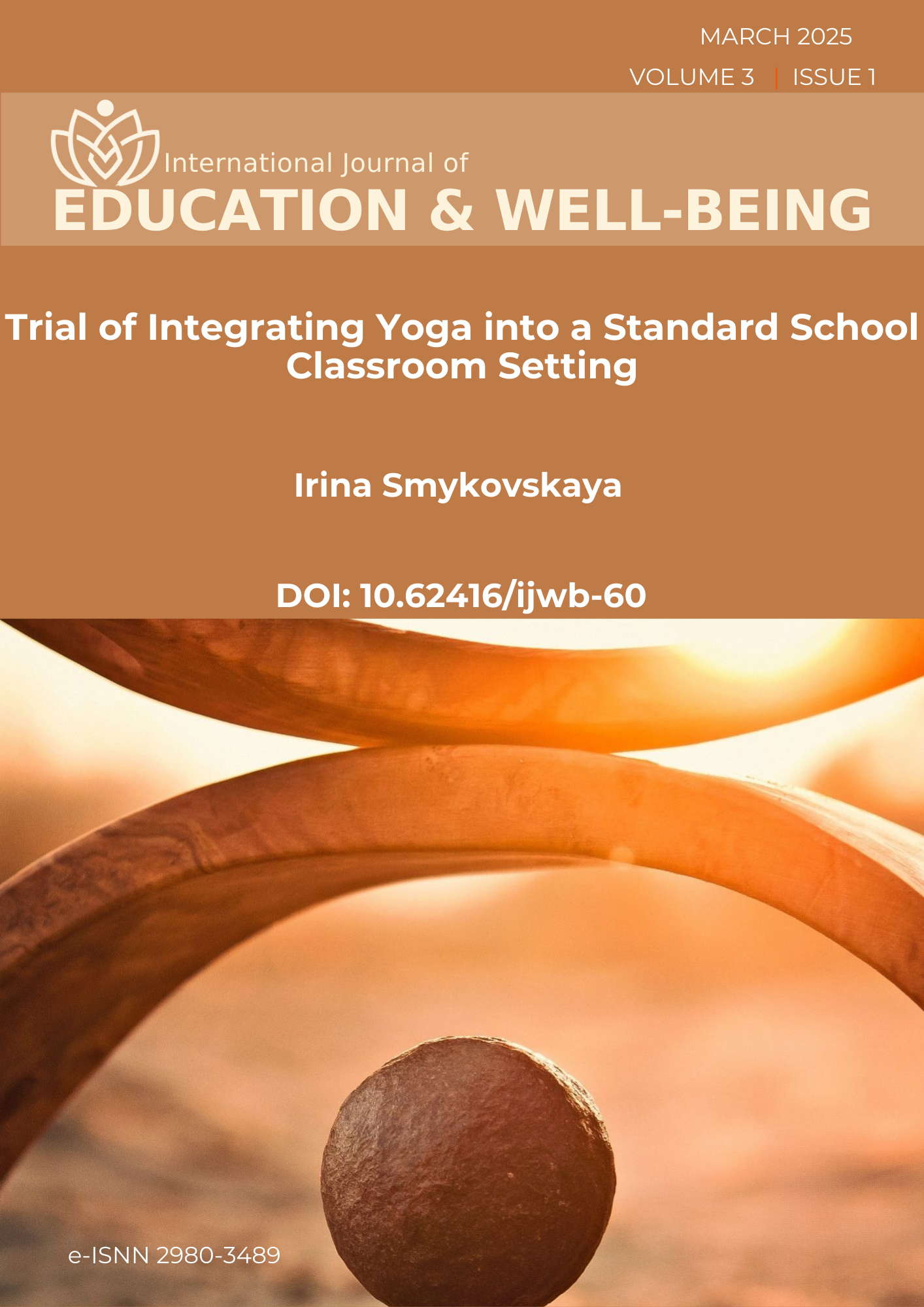Trial of Integrating Yoga into a Standard School Classroom Setting
DOI:
https://doi.org/10.62416/ijwb-60Keywords:
Yoga, Mainstream Education, Students' Health, Yoga in SchoolsAbstract
The author introduces a holistic approach to regaining self-awareness and self-consciousness in this paper. This approach energizes and connects all three aspects: the body, the mind, and the soul. Although this technique is recognized worldwide, it has not been widely implemented in mainstream children's education in Western countries. This technique is known as Yoga.
In particular, the author aims to introduce and examine one of the yoga trials commonly implemented at a typical senior high school in Japan during the EFL class. This experiment seeks to determine whether yoga can be integrated not into a PE program but into a regular classroom environment—with limited space and time—during an EFL class, which typically has no connection to physical education. We will also evaluate the outcomes of a single session at the school gym with a qualified yoga instructor. We will assess whether these experiences benefited the students and discuss their responses to such an unconventional EFL class. Additionally, we will explore potential yoga teaching methods for the classroom and evaluate whether yoga has a future in schools, not only in India but also in countries with limited connections to yoga, such as Japan.
References
Agarwal, N. (2013). The Many Benefits of Teaching Yoga in Schools for Students https://timesofindia.indiatimes.com/blogs/voices/the-many-benefits-of-teaching-yoga-in-schools-for-students/
Eaude, T. (2019). International Handbook o^f Holistic Education. Routledge.
Ecclestone, K. & Hayes, D. (2009). The Dangerous Rise of Therapeutic Education. London: Routledge.
Kessler, R. (2000). The Soul of Education: Helping Students Find Connection, Compassion, and Character
at School. Alexandria, VA: ASCD.
Mankar, M. (2024) NEP 2020 and Yoga Education in India.
https://www.linkedin.com/pulse/nep-2020-yoga-education-india-dr-dhananjay-mankar-ibi0f
Miller, J. (2000). Education and the Soul: Toward a Spiritual Curriculum. Albany, NY: SUNY Press.
Moore, T. (2019). International Handbook of Holistic Education. Routledge.
Nagarajan, K. (2015). Yoga Education (Bachelor of Education). Public Grievances/Virtual Cell Center:
St. Joseph Press.
National Council for Teacher Education (2015). Yoga Education (Bachelor of Education). Public Grievances/Virtual Cell Center: St. Joseph Press.
Scindia Kanya Vidyalaya (2024): The Importance of Yoga in a Student’s Life.
Samoilova, S. (2025) https://vk.com/praktiki_iscelenija
Singer, J. L. (1976). The Inner World of Daydreaming. Harper & Row.
The Central Board of Secondary Education, India (2023). The Importance of Yoga in Students' Lives.

Downloads
Published
How to Cite
Issue
Section
License
Copyright (c) 2025 Irina Smykovskaya

This work is licensed under a Creative Commons Attribution 4.0 International License.






